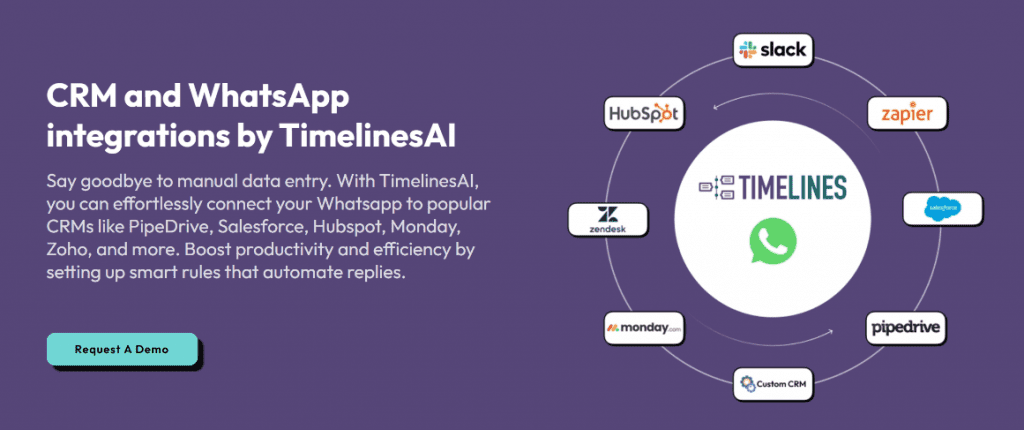Running a business is like steering a ship. You need someone at the helm, not just keeping things afloat but scouting for new waters, plotting the best routes, and navigating through challenges. That’s exactly what a business development manager (BDM) does. They’re the growth drivers—the people who turn opportunities into actionable strategies and revenue.
Disclosure: If you click on my affiliate/advertiser’s links, I am going to receive a tiny commission. AND… Most of the time, you will receive an offer of some kind. It’ s a Win/Win!
When I think about the role of a BDM, the Finnish saying comes to mind: “Parempi pyy pivossa kuin kymmenen oksalla”. In English, this roughly means “a bird in the hand is worth ten in the bush.” The lesson? A great BDM knows how to turn potential leads into tangible results. They balance ambition with practicality, making sure opportunities are secured before chasing the next big thing.
In this guide, I’ll look into the responsibilities of a business development manager, the skills you need to be successful in this role, and why it’s one of the most pivotal positions in any organisation. Whether you’re aspiring to be a BDM, hiring one, or looking to understand the value they bring, this article is for you. Let’s dig in!
Table of Contents
1. What Does a Business Development Manager Do?
An overview of the responsibilities and day-to-day activities of a BDM.
2. The Importance of a Business Development Manager in Driving Growth
Explore how a BDM contributes to strategic success and revenue generation.
3. Essential Skills Every Business Development Manager Needs
From communication to negotiation, discover what it takes to excel in this role.
4. Identifying and Capitalising on Opportunities
Learn how BDMs spot trends, evaluate markets, and make impactful decisions.
5. Building and Nurturing Client Relationships
Understand the art of creating long-lasting partnerships.
6. Strategic Planning: Mapping Out Growth
Discover how BDMs align business objectives with actionable strategies.
7. Overcoming Common Challenges as a BDM
Explore hurdles in the role and how to tackle them effectively.
8. The Tools and Techniques Every Business Development Manager Should Master
A look at software, frameworks, and methods that drive success.
9. How to Become a Business Development Manager
Practical advice on career paths, certifications, and interview tips.
10. The Future of Business Development Management
Trends shaping the role and why it’s becoming more important than ever.
11. Summary and Conclusion: The Essential Role of a Business Development Manager
Level-up your career with Udacity's popular School of Data Science1. What Does a Business Development Manager Do?
A business development manager (BDM) is often the unsung hero of a company’s growth strategy. They’re the ones out there identifying new opportunities, forging strong partnerships, and ensuring the business remains competitive in an ever-evolving market. If sales teams are the engines driving revenue, BDMs are the navigators, ensuring the business is headed in the right direction.
Their day-to-day responsibilities are as varied as they are impactful. From analysing market trends and identifying potential clients to negotiating deals and collaborating with internal teams, the role requires a mix of strategy, creativity, and grit. For instance, a BDM might spend the morning researching emerging markets and the afternoon pitching a new partnership idea to senior executives. Every day is different, but the focus is always the same: growth.
The Finnish idiom “parempi pyy pivossa kuin kymmenen oksalla” perfectly encapsulates the mindset of a skilled BDM. In English, “a bird in the hand is worth ten in the bush.” The lesson here is crucial for BDMs: it’s not just about chasing opportunities; it’s about securing the right ones. A great BDM knows how to balance ambition with practicality, ensuring that potential leads translate into actual results.
Actionable Insight: If you’re stepping into a business development manager role, focus on mastering time management. The ability to juggle multiple tasks—prospecting, pitching, and strategising—is key to excelling in this dynamic position.
Mastering the Art of Project Management: Your Path to Excellence. Begin your journey HERE.2. The Importance of a Business Development Manager in Driving Growth
Every business wants to grow, but not all know how to get there. That’s where a BDM becomes invaluable. They bridge the gap between a company’s goals and the market’s realities, creating strategies that align business ambitions with customer needs. Without a BDM, businesses risk stagnation or chasing the wrong opportunities.
Let’s take an example: imagine a company wants to enter a new market. A BDM conducts market research, identifies potential competitors, and creates a strategy to differentiate the business. They don’t stop there—they also build relationships with local partners, ensuring the expansion is seamless and culturally relevant. In this way, they act as the linchpin of sustainable growth.
In Chinese, there’s a saying: “滴水穿石” (Dīshuǐ chuān shí), meaning “dripping water wears away stone.” It reflects the persistence and effort required to succeed in a role like this. A great BDM doesn’t give up after a single rejection. Instead, they refine their approach and keep moving forward, knowing that success often comes from steady, consistent effort.
Pro Tip: To highlight the importance of a BDM in your organisation, track and showcase metrics like revenue growth, client acquisition, or successful partnerships. Data speaks louder than words when demonstrating value.
3. Essential Skills Every Business Development Manager Needs
Being a BDM requires a unique blend of skills. You need to be a negotiator, strategist, relationship builder, and communicator—all rolled into one. Let’s break it down:
1. Communication Skills: BDMs often act as the face of the company. Whether they’re pitching to potential clients or presenting strategies to the board, clear and persuasive communication is essential. For instance, tailoring your pitch to resonate with different stakeholders can make or break a deal.
2. Negotiation Tactics: Closing a deal isn’t just about what you’re offering—it’s about finding common ground. Effective negotiators understand when to stand firm and when to compromise. As the French say, “Il faut savoir mettre de l’eau dans son vin,” or “One must know how to dilute their wine.” In business terms, it’s about knowing when to adapt.
3. Market Analysis: A good BDM stays ahead of the curve by keeping a finger on the market’s pulse. This includes identifying trends, assessing risks, and spotting opportunities before competitors do.
4. Cultural Awareness: In today’s globalised world, understanding cultural nuances is crucial. A Swedish saying comes to mind: “Man ska inte sälja skinnet förrän björnen är skjuten,” which translates to, “Don’t sell the hide before the bear is shot.” The lesson? Respect and patience are vital when building relationships across cultures.
5. Strategic Planning: Aligning short-term actions with long-term goals is a hallmark of a great BDM. They ensure that every decision contributes to the company’s broader vision.
Actionable Insight: If you’re looking to develop these skills, start with negotiation and market research. These are foundational to a BDM’s success and can significantly impact your effectiveness in the role.
Unleash the Power of Learning with our Edureka’s Master Courses. Click HERE for more info.4. Identifying and Capitalising on Opportunities
One of the most exciting aspects of being a BDM is spotting opportunities others might overlook. This requires a combination of curiosity, research, and intuition. Whether it’s identifying a gap in the market or recognising a new partnership opportunity, the ability to turn potential into profit is what sets great BDMs apart.
For instance, a BDM in the tech industry might notice a rising demand for AI-powered tools in smaller businesses. By acting quickly, they can position their company as a leader in this niche before competitors catch on. It’s all about staying one step ahead.
The Hungarian saying “Nem lehet egyszerre két lovat megülni” translates to “You cannot ride two horses at the same time.” For BDMs, this is a reminder to focus on the most promising opportunities rather than spreading efforts too thin. Quality always trumps quantity in business development.
Actionable Insight: Use tools like LinkedIn Sales Navigator or Google Trends to identify market trends and potential leads. Combine this with insights from CRM systems to prioritise high-potential opportunities.
5. Building and Nurturing Client Relationships
At its core, business development is about people. Building and maintaining strong client relationships is not just a skill—it’s an art. A great BDM understands that trust takes time to build but can be lost in an instant. (For a more in-depth discussion of this, read my article “Customer-Centricity: The Key to Building Loyalty and Driving Revenue“.)
The first step is understanding your client’s needs. This means listening more than you speak and tailoring your approach to address their specific challenges. Once trust is established, nurturing the relationship becomes a long-term effort. Regular check-ins, personalised solutions, and transparent communication go a long way in strengthening partnerships.
The Mandarin phrase “人脉即财富” (Rénmài jí cáifù) translates to “Your network is your wealth.” This couldn’t be more true for a BDM. A strong network not only helps secure deals but also opens doors to future opportunities.
Actionable Insight: Implement a CRM system to keep track of client interactions, preferences, and follow-ups. This ensures no relationship falls through the cracks and shows clients you value their partnership.

6. Strategic Planning: Mapping Out Growth
Strategic planning is like setting the GPS for your business journey. Without it, you might get somewhere, but it’s unlikely to be where you intended. For a business development manager (BDM), every decision needs to tie back to the broader company goals. You’re not just reacting to the present—you’re paving the way for the future.
I’ve often found myself poring over market reports and sales data, piecing together the bigger picture. It’s not glamorous, but the results are worth it. For example, when planning an expansion, you’re not just considering potential revenue. You’re thinking about competition, operational capacity, cultural fit, and even local regulations. It’s like the Hungarian saying “Aki nem dolgozik, ne is egyék”—“Who does not work, shall not eat.” (Originally from the Bible.) Strategic planning is the hard work that ensures the rewards come later.
A good BDM aligns short-term tactics with long-term strategies. If you’re chasing every opportunity without a clear vision, you’re likely to burn out your resources—and your team. It’s better to aim for sustainable growth, even if it means making some tough calls along the way.
Actionable Insight: Create a roadmap with quarterly goals that align with the company’s mission. Use this as a reference point when evaluating new opportunities to ensure they support the bigger picture.
7. Overcoming Common Challenges as a BDM
Let’s not sugarcoat it—being a BDM comes with its fair share of headaches. One of the biggest challenges is managing stakeholder expectations. Everyone wants results, and they want them yesterday. Balancing short-term demands with long-term priorities can feel like juggling knives.
Another common issue is dealing with rejection. Not every pitch lands, and not every lead converts. converts It’s easy to get discouraged, but a skilled BDM knows how to diversify their efforts. As the French say, “Il ne faut pas mettre tous ses œufs dans le même panier”—“Don’t put all your eggs in one basket.” The lesson here? Avoid relying too heavily on one deal, one client, or even one market. By spreading your efforts across multiple opportunities, you reduce the risk of significant setbacks and keep your growth strategy flexible.
Time management is another hurdle. Between meetings, research, and client interactions, it’s easy to feel overwhelmed. I’ve learned to batch tasks wherever possible. For example, I dedicate specific days to prospecting and others to internal planning. This keeps me focused and (mostly) sane.
Pro Tip: When rejection gets tough, remind yourself of the bigger wins. Even a 20% success rate can have a massive impact if the deals are high-value. It’s all about perspective!

8. The Tools and Techniques Every Business Development Manager Should Master
I’ll admit it—I’m a bit of a tool junkie! The right software can make all the difference when it comes to staying organised and efficient. Here are a few tools I can’t live without as a BDM:
1. CRM Systems (HubSpot, Salesforce): These are your command centres. They keep track of leads, client interactions, and deal progress, all in one place.
2. Market Research Tools (SEMrush, Statista): Whether you’re analysing trends or scoping out competitors, these tools are invaluable for staying ahead.
3. Communication Platforms (Zoom, Slack): As much as I love face-to-face meetings, remote collaboration is the name of the game these days.
4. Analytics Software (Google Analytics, Tableau): Data drives decisions. These tools help me visualise insights and track KPIs.
5. Project Management Tools (Asana, Trello): Keeping track of deadlines and deliverables is critical when managing multiple projects.
But tools are only half the story. Techniques like SWOT analysis, lead scoring, and customer journey mapping are just as crucial. One technique I swear by is MoSCoW prioritisation (Must Have, Should Have, Could Have, Won’t Have). It’s a simple way to focus on what truly matters during planning sessions.
Actionable Insight: Start by mastering one or two tools that address your biggest pain points. For me, it was learning HubSpot’s CRM features. Once I got the hang of it, managing leads felt like a breeze.
9. How to Become a Business Development Manager
Becoming a BDM isn’t about luck—it’s about building the right mix of skills, experience, and relationships. For me, the journey wasn’t linear. I dabbled in sales, dipped my toes into marketing, and finally found my sweet spot in business development. Every step added a layer of expertise that I lean on daily.
If you’re starting out, look for entry-level business development manager roles or related positions in sales or account management. These roles offer invaluable hands-on experience with clients, negotiations, and goal setting. Certifications like “Certified Business Development Professional (CBDP)” or courses in strategic planning can also boost your credentials.
And don’t underestimate the power of networking. I can’t tell you how many opportunities have come my way because of connections I made at industry events or even casual LinkedIn chats. It’s like the Swedish proverb “Ett gott skratt förlänger livet”—“A good laugh prolongs life.” While it’s meant to be light-hearted, it reminds me that relationships and positivity are at the heart of success.
Pro Tip: Tailor your business development manager resume to highlight achievements, not just responsibilities. Use metrics like “increased client acquisition by 25%” or “closed £100K in new business” to stand out.

10. The Future of Business Development Management
The BDM role is evolving fast. With technology advancing and markets becoming more interconnected, the expectations for business development managers are higher than ever. It’s no longer just about making connections—it’s about leveraging data, understanding cultural nuances, and driving innovation.
One major trend is the rise of AI and machine learning in business development. Tools like LinkedIn Sales Navigator now offer predictive insights, helping BDMs identify high-potential leads faster. Another shift is the emphasis on sustainability. Companies are prioritising partnerships and strategies that align with environmental, social, and governance (ESG) goals.
In Finnish, there’s a saying: “Ei oppi ojaan kaada”—“Learning doesn’t throw you in the ditch.” It’s a reminder that staying curious and adaptable is the key to success in any field, especially one as dynamic as business development.
Actionable Insight: Stay ahead of trends by investing in ongoing education. Subscribe to industry blogs, attend webinars, and take courses on emerging technologies and sustainability in business.
Edureka Big Offers – Unlock Savings with CITI bank Card11. Summary and Conclusion: The Essential Role of a Business Development Manager
A business development manager (BDM) isn’t just another cog in the business machine—they’re the engine driving growth and innovation. Whether it’s identifying new markets, nurturing client relationships, or creating strategies that align with long-term goals, the impact of a skilled BDM can’t be overstated.
Throughout this article, we’ve explored the multifaceted nature of the BDM role, from mastering strategic planning to overcoming challenges like rejection and time management. We’ve also highlighted the tools and techniques that make this work more efficient and effective. As I’ve learned, being a BDM means wearing many hats—and sometimes all at once!—but it’s also one of the most rewarding roles for anyone who thrives on solving problems and creating value.
If you’re pursuing a career in business development, remember that it’s a journey, not a sprint. Build your skills step by step—whether through entry-level roles, certifications, or hands-on experience. And don’t forget the power of relationships. As the Chinese saying “人脉即财富” (Rénmài jí cáifù) reminds us: “Your network is your wealth.” Invest in it.
For businesses looking to hire a BDM, consider the impact they’ll have on your growth trajectory. A great BDM doesn’t just meet targets—they transform how your business approaches opportunities, partnerships, and strategy.
At Krislai.com, my mission is to help you navigate these business challenges with confidence. Whether you’re exploring roles, refining your skills, or simply curious about modern business practices, there’s more to learn here. Bookmark the blog, leave a comment, and let’s keep this conversation going. Together, we can tackle every challenge and make business growth not just achievable, but exciting.
Learn more to elevate your business acumen:
- Turn AI Anxiety into Competitive Advantage: How to Future-Proof Your Workforce for the AI Revolution
- Unlock Profit: Calculate Customer Lifetime Value & Maximize Growth
- Creating a Customer Persona: A Step-by-Step Guide On How To Do It
- Unleashing the Power of Digital Signage: The Best Software to Transform Your Business
- How Businesses Can Use Freelance Platforms & Expert Networks to Scale Smarter






